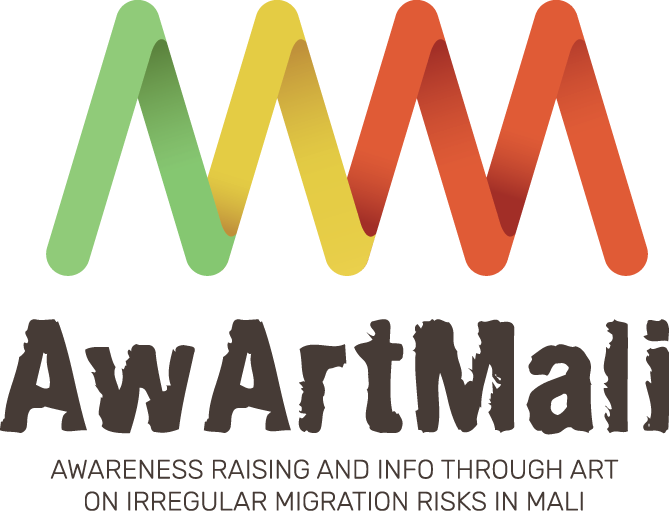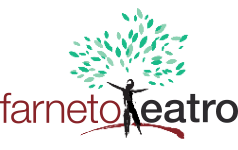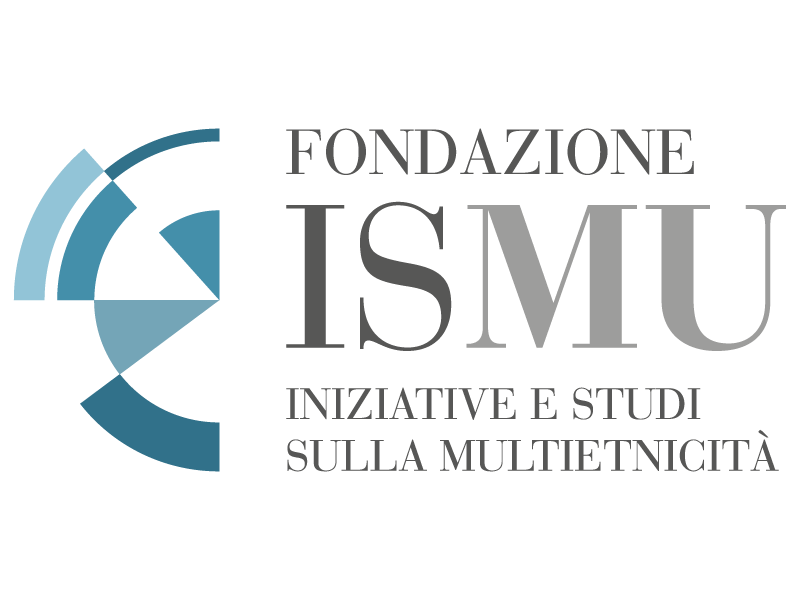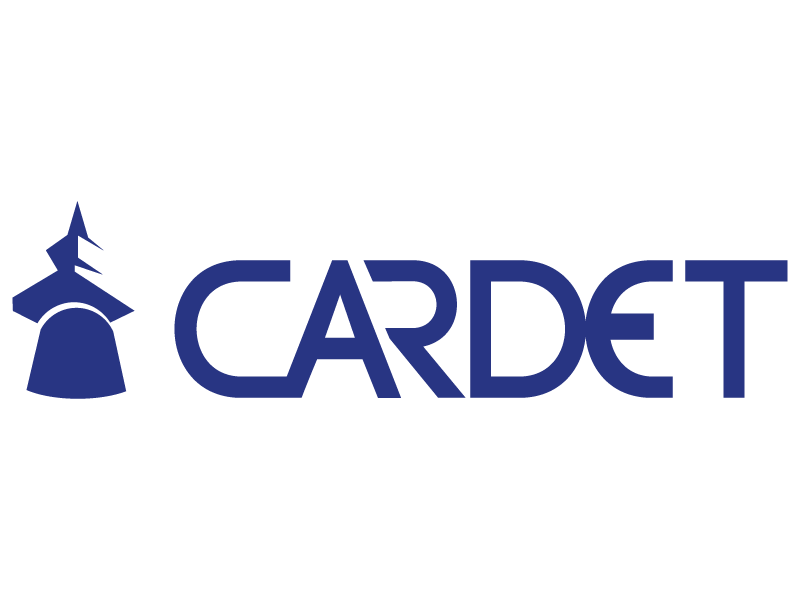After the debut in Ouagadougou and the performances in Bamako, “Tunka L’aventure” is on tour in the rural villages of the municipalities of Kambila, Dianeguebougou, Dio-Gare and Diago
The caravan “TUNKA, l’aventure” traveling through rural villages in Mali
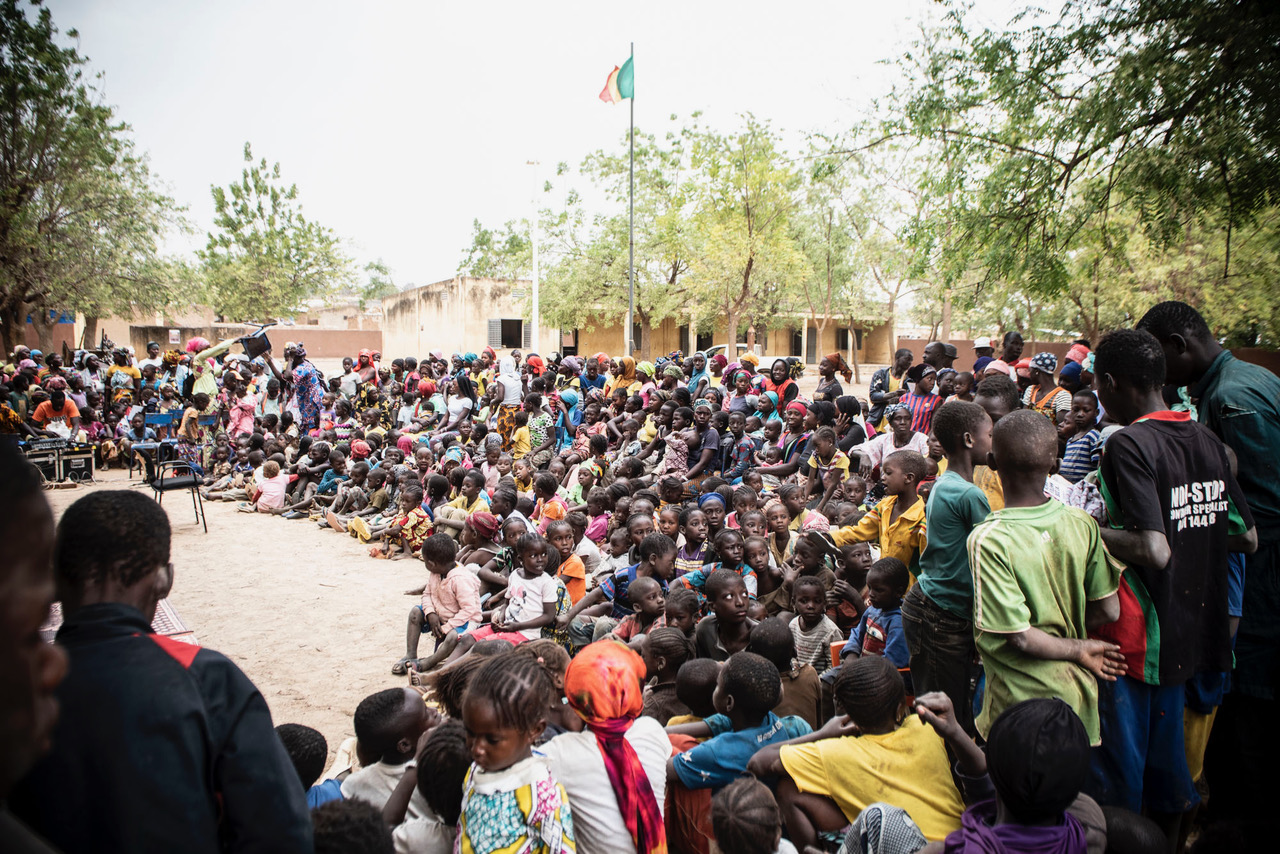
The show, produced by farneto Teatro with the Centre Gambidi of Ouagadougou, was made starting from the interviews that Maurizio Schmidt has made with migrants, returning migrants and families in Italy, Spain and Mali. After a period of improvisation with the actors, directed by Luca Fusi, the writer Ildeverd Meda has finalised the text, which clearly represents the causes of migration, the risks of travelling, the conditions of migrants in Europe, the enormous difficulties on the way back.
The representations in the rural villages took place from the 3rd to 17th February and reached the villages of N’golovala, Fanafie’ Coro, Siramanso, Fansira-Coro, Guily, Soninkegny, M’piebougou, Dianeguebougou. Goro, Dio-Gare, Sotoli, Diago Village.
The villages welcomed the show in the public squares or in the school courtyards as an important event and as a party with music and dances (such as, for example, Siramanso and Guilly) and with a show of masks and acrobatics in Fansira koro.
The timetable was chosen with the representatives of the community, the start of the show between 15 and 17 has allowed to gather most of the inhabitants: between 300 and 400 people per village, an audience composed of elderly and young people, many women, some men and an infinity of children. The scenic system, very simple, could be set on the ground, while the public was placed on a hundred chairs rented on the spot, mats provided by the company (for children), seats and benches brought by the public itself, while many spectators stood in a semicircle. The actors and musicians of the company – 9 in all, professionally very gifted, motivated and generous – have been able to win a great concentration during the show (of the duration of an hour and ten minutes), also collecting laughter– in fact there are fun moments – emotion and a lot of warmth during the thanks.
The public has almost always disposed to social and age groups: women separated from men, old and adult men in groups (among them returning migrants, some of whom already interviewed in previous months), young people at the borders (but particularly attentive), the kids in front. The great attention of children – even the younger ones – was amazing. TUNKA is not addressed to children, but the physical actions that dot the show, the perception of the importance of the theme, the exceptional nature of the event has very involved them, since the editing phase.
The youngsters who are one of the main targets of the project – were prepared by teachers in schools and by support of the Le tonus NGO project partner, while in some cases Maurizio Schmidt, Luca Fusi and Ildeverd Meda met the professors in the months preceding the show. In Fanafié koro and Diago meetings were held with the company in the days following the show and in Kambila is underway a theatre workshop on the theme that will lead to a public outcome on February 21. A competition for themes and drawings inspired by the theme of the show has also been launched which will reward the best compositions and drawings of the students with the provision of teaching materials for the participating schools.
In the discussions that constitute the fundamental second half of the “awareness-raising theatre” and also in the important subsequent exchanges (greetings, questions during disassembly), a general appreciation for the show and the message emerged. But above all the importance of the information (many declare that they knew only superficially the risks and difficulties of the trip), the emotional involvement (more than one viewer said that he felt like a migrant) and they were significant and involving the interventions of returning migrants (some of whom spoke for the first time in public, in front of their own community). There have also emerged reflections – especially from women – on the need to change behaviours with respect to migration within families, an aspect that theatrical performance highlights well.
In many villages, all characterized by an agricultural economy and serious economic difficulties, it has become clear that it is difficult to find viable alternatives to migratory choice, opportunities that can concretely motivate young people and discourage adventure, and specific needs (barrages, wells, storage sites, cooling chambers, equipment for product processing) were highlighted.
Finally, one of the main effects of the– project, which has often been mentioned in the debates, is the establishment of associations of migrants returning to each municipality and linked with each other, with very concrete objectives, attention not only to the problems of the people who have returned, but to the needs of the villages as a whole.
A result that the caravan and the AwArtMali project intends to leave to these communities to help create the conditions so that the opportunities can really allow everyone to choose where to live and realize their future with dignity and without to expose one’s life to the danger of irregular migration.
What is AwArtMali
AwArtMali aims to contribute to the change of perceptions and behaviour of Malian people looking to irregular migration towards the EU as the only solution to their socio-economic problems.
The action is intended to reach and involve Malian people in order to make them aware and inform them on the risks of irregular migration, on legal alternatives and on economic opportunities available in their country with a multistakeholder approach consisting in awareness campaign and information activities.





